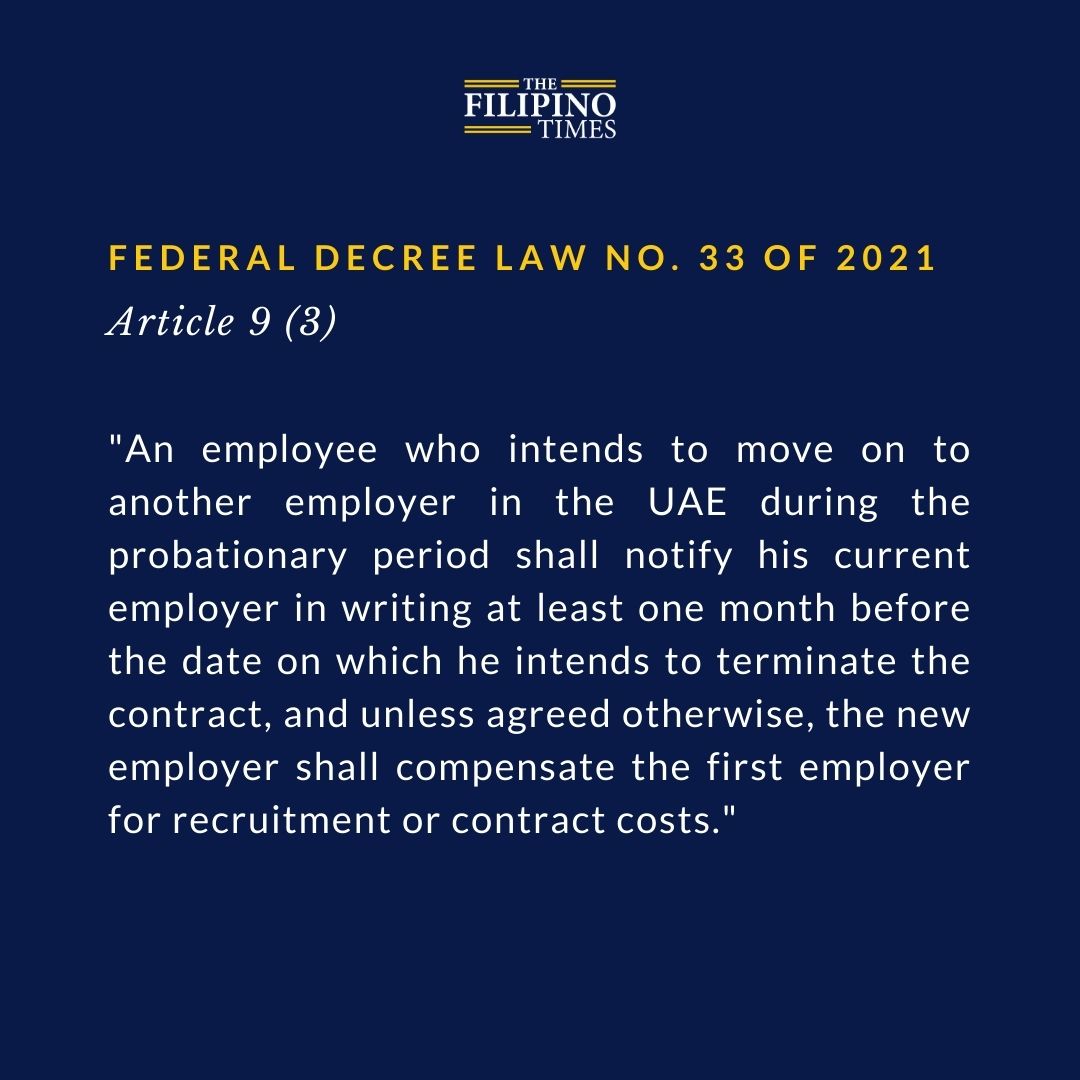Following the implementation of the new employment law, it is important to be aware of the regulations regarding the probation period for jobs in the UAE. Employers have the right to place an employee on probation for a maximum duration of six months. However, during this period, the employer can terminate the employee’s contract by providing a written notice of 14 days. This provision is outlined in Article 9 (1) of the Employment Law, which states, “The Employer may employ the employee on probation for a period not exceeding six months from the service commencement date. The employer may terminate the employee during such period by giving the employee fourteen days’ prior written notice.”

Once the six-month probation period is completed, employers are prohibited from subjecting their employees to probation again. Article 9 (2) of the Employment Law enforces this restriction.
In the event that an employee intends to resign from their current position and join another employer within the UAE during the probationary period, they must provide a notice period of one month. Additionally, the new employer is required to compensate the current employer for any recruitment or contract costs incurred. This requirement is outlined in Article 9 (3) of the Employment Law, which states, “An employee who intends to move on to another employer in the UAE during the probationary period shall notify his current employer in writing at least one month before the date on which he intends to terminate the contract, and unless agreed otherwise, the new employer shall compensate the first employer for recruitment or contract costs.”

Should an employee decide to resign and leave the UAE, they are obliged to serve a 14-day notice to their employer. However, if the same employee begins new employment within three months of termination, the new employer is required to compensate the previous employer for recruitment and contract costs. This provision is outlined in Article 9 (4) of the Employment Law.
Further, failure by either the employer or employee to serve the required notice period during the probationary period will result in the compensatory liability of the non-compliant party. Article 9(5) of the Employment Law stipulates this obligation. Additionally, any employee who violates the regulations related to the probationary period will be barred from obtaining a new work permit for a period of one year. However, certain exemptions may apply to specific categories of employees based on their skill levels and designations. These exceptions are outlined in Article 9 (6) of the Employment Law.
During the probation period, employees are not entitled to paid sick leave. However, employers have the authority to grant sick leave to employees if a medical report from local authorities confirms its necessity. This provision can be found in Article 31 (2) of the Employment Law. As an employee, you have the right to request unpaid leave from your employer at any time during your employment. However, the decision to grant such leave is at the discretion of the employer, as stated in Article 33 of the Employment Law.
Moreover, upon completion of the probationary period, if either the employer or the employee intends to terminate the contract, the party desiring termination must serve a notice period of one month.




